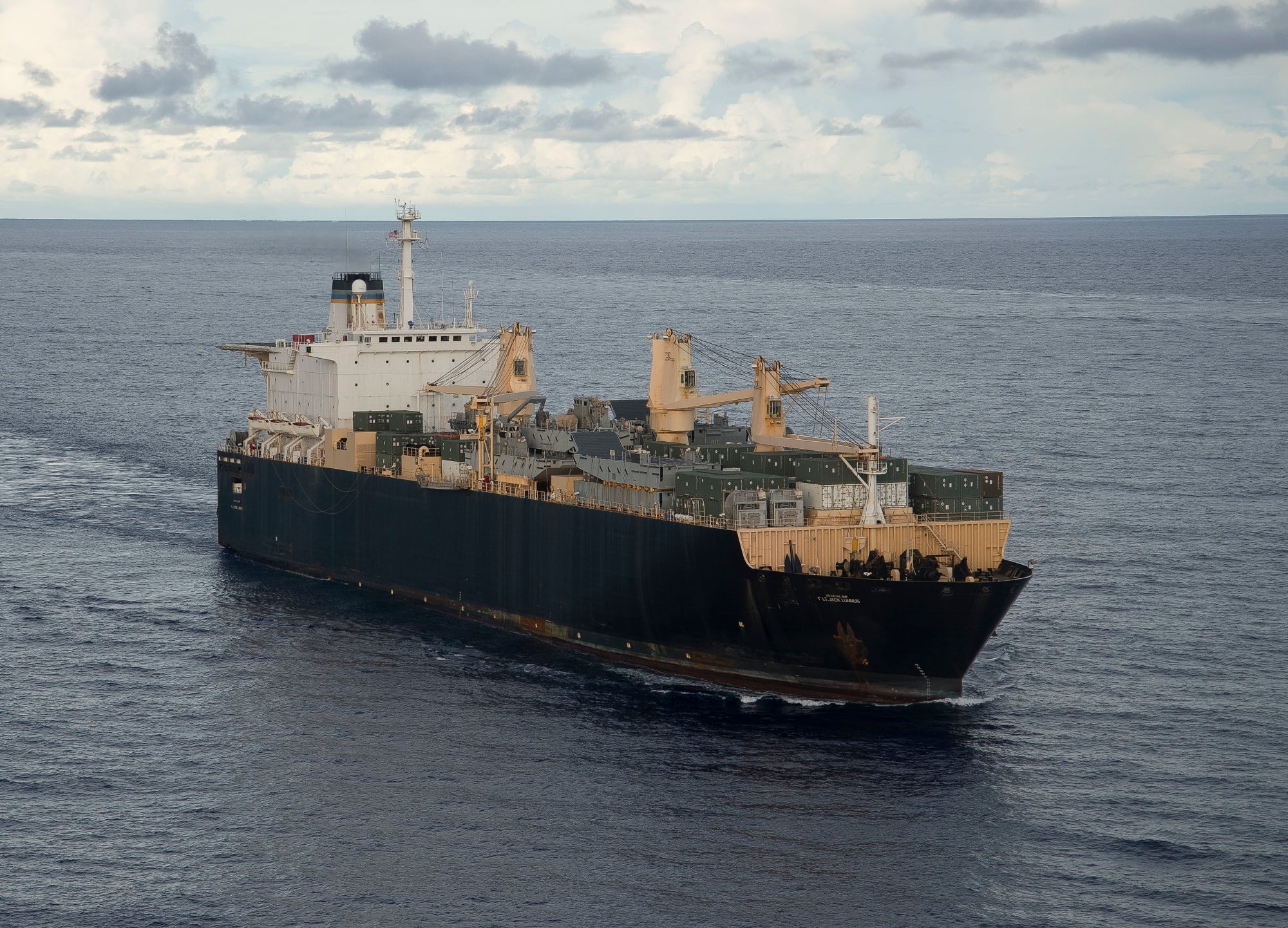Logisticians will have to learn deception tactics when supplying troops as more equipment will be floating aboard ships than ever before in global operations, officials say.
Gary Motsek, deputy assistant in the Office of the Secretary of Defense, told attendees at the National Defense Industrial Association’s annual Expeditionary Warfare Conference in Annapolis, Maryland, that the nature of warfare and increased enemy threats puts the long tail supply chain at risk.
“Large log(istics) points have become a threat we can’t handle anymore,” Motsek said. “We’re going to have more distributed logistics.”
He urged conventional forces to think and act like special operations forces when it comes to supplying troops. Units will have to do more with a smaller footprint over longer periods of time.
And previously held assumptions can’t be taken for granted.
“Safe havens aren’t safe havens anymore,” he said.
For example, Guam was once considered “unassailable” but is now under threat of missile attacks from North Korea.
Continental United States bases are under threat from cyber-attacks that can disorient personnel or take out power supplies, sabotage transportation and cause other problems.
Like operational forces, logistics personnel will have to conceal and confuse the enemy’s intent on attacking supplies.
“Logisticians are going to have to get smart at deception,” he said. “I can’t have a singular warehouse in Kuwait. I have to have multiple warehouses in Kuwait, some of which are empty.
“I have to be able to hide in plain sight and still support you,” Motsek said.
And those supplies won’t all sit on land-based stations.
“In expeditionary warfare, there is a move to put more afloat,” Motsek said. “There is value in having a warehouse you can move.”
The Navy and Marine Corps have long used the Maritime Prepositioning platforms, ships that carry combat loads, moving in various theaters across the globe, ready to supply a number of troops for a brief period.
But even something as simple as getting ammunition to troops must change, he said.
There are two ports — one on each coast — where ammunition can travel through to go overseas. With enemies that have anti-ship capabilities, “having a singular ammunition ship going east or west probably isn’t smart,” he said.
Todd South has written about crime, courts, government and the military for multiple publications since 2004 and was named a 2014 Pulitzer finalist for a co-written project on witness intimidation. Todd is a Marine veteran of the Iraq War.




